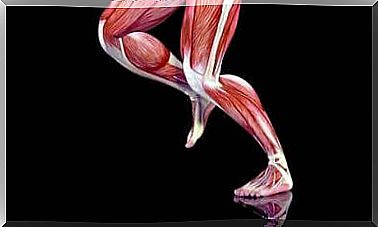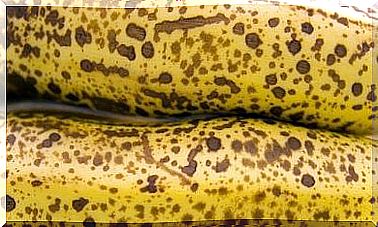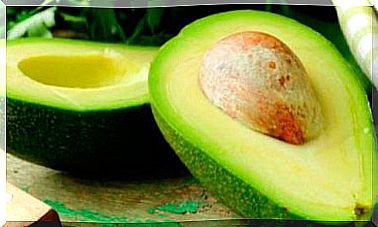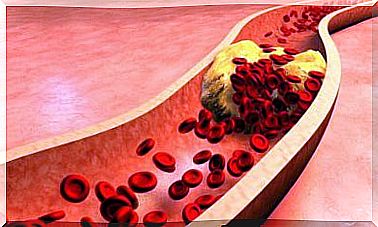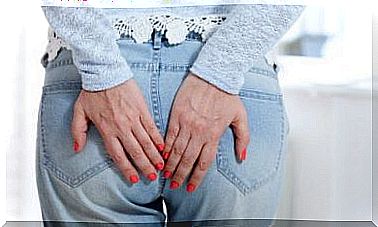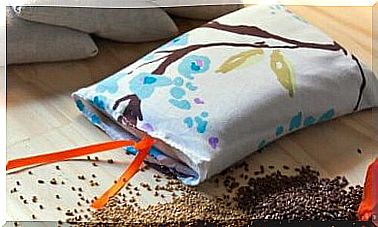Eczema: Causes, Symptoms, Diagnosis And Treatment
Eczema can improve with changes in your diet. However, it is still essential to consult a dermatologist, in order to obtain a personalized diagnosis and some advice to relieve this skin disease.
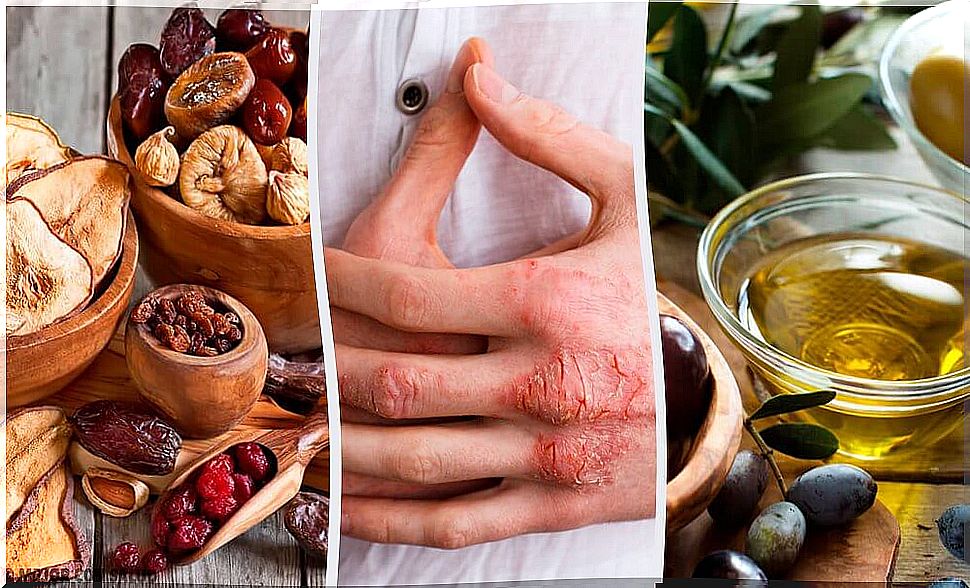
Eczema is a common skin disease. This skin pathology has increased considerably in industrial countries due to environmental factors. Between 10 and 20% of the population of countries with a high pollution rate suffers from eczema.
The skin is the body’s largest organ. Being the layer of the body most exposed to external attacks, it is in contact with all types of external agents. It is also the organ through which we can discover the warning signals of many diseases.
Let’s find out together, in this article, what are the causes of eczema, as well as the symptoms and the most appropriate treatment to treat this skin disease.
Eczema, what is it?
Eczema is an inflammation of the skin that can appear in any area of the body. In most cases, this inflammation is accompanied by itching, redness, blisters and spots in the affected area.
This skin disorder can occur at any age, and for no clear reason. It can disappear after a while, or it can be very resistant to all possible treatments. When this is the case, it is usually due to the difficulty in determining the root cause of the eczema.
Types of eczema
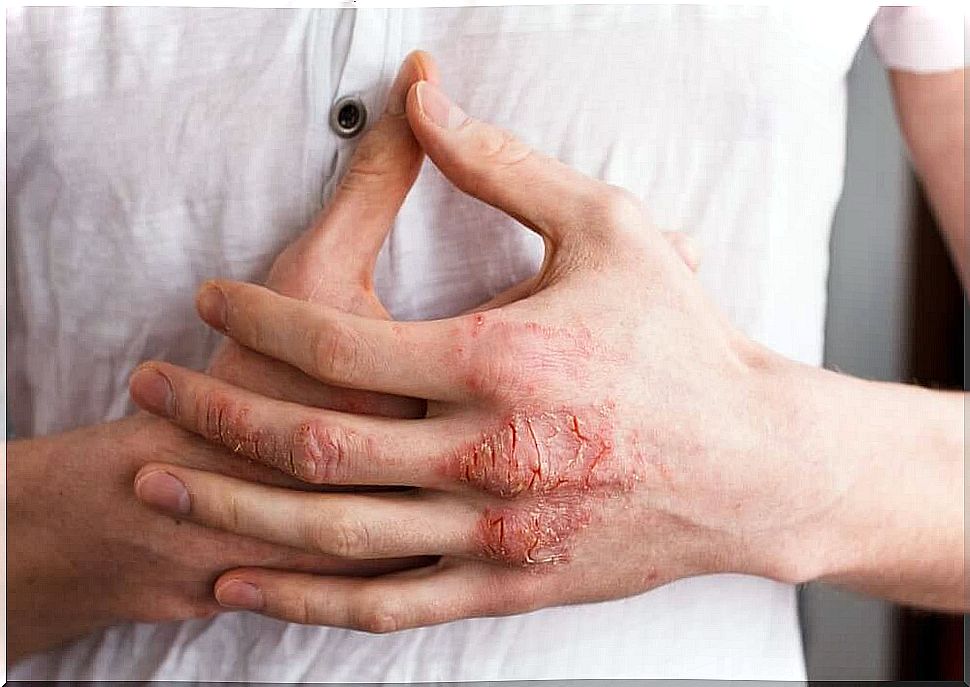
Eczema presents a very broad clinical pattern. The areas of the body affected may vary.
The types of eczema can be divided into:
- Exogenous factors: irritative or allergic contact eczema
- Endogenous factors: seborrheic dermatitis, atopic dermatitis and nummular eczema
The causes
There is a long list of factors that cause or worsen eczema. Among them are the following factors:
- Environmental pollution
- Contact with toxic substances
- Unbalanced diet
- Food intolerance
- Cosmetic products, creams or aftershave lotions
- Industrial emissions or motor vehicle emissions
- Environmental residues from power plants
- Tobacco consumption
- Genetic factors
- Shampoos, hair dyes, hair products, etc.
Symptoms
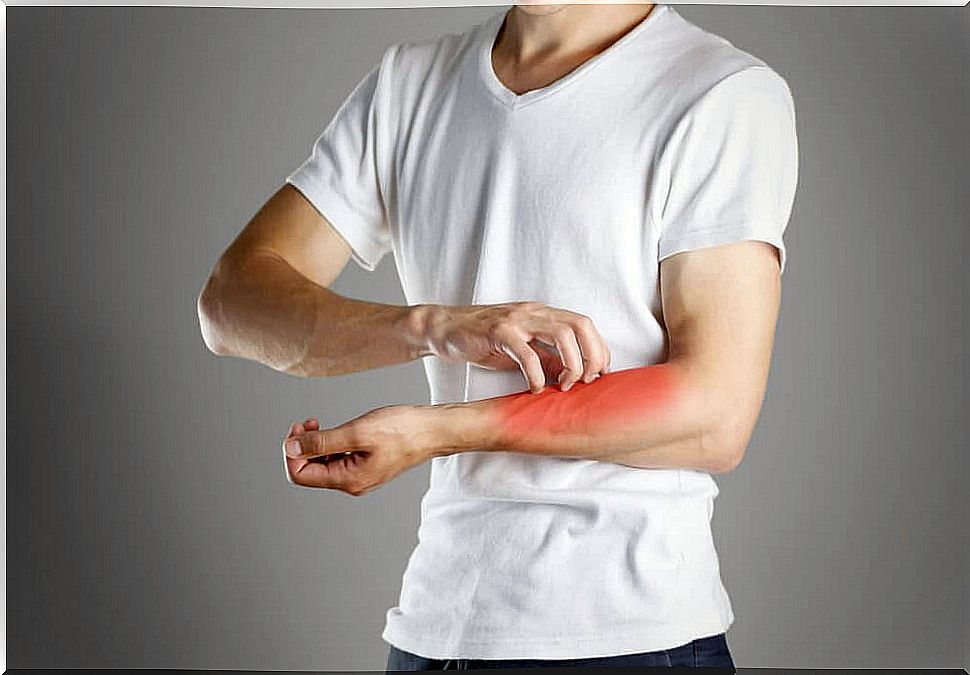
The symptoms of this skin disease are very easy to identify, because the warning signs are visible:
- Red patches, blisters or scabs
- Irritated areas of the skin, especially on the elbows and knees
- Scales on the scalp
- Watery ulcers, which also tend to suffer from bacterial infections
The diagnosis
To diagnose eczema, one must take into account the appearance of the lesion, but it is possible to confuse it with other skin disorders. The only skin tests available only determine if the root cause of eczema is related to an allergy.
The modern lifestyle and poor nutritional habits have therefore increased the susceptibility of people to allergens.
The treatment

The treatment consists of eliminating the factors causing eczema, which, as seen above, can be very varied.
Traditional medicines are: corticosteroids, antihistamines and antibiotics. However, these drugs are not always effective, especially with difficult diagnosis, which is why symptoms may return.
In addition, these drugs have side effects for health. Conversely, natural medicine is based on food to determine an appropriate treatment depending on the case.
A specific diet
People who suffer from eczema or skin problems in general tend to overuse dairy products, sugar, refined flours, and fat.
The peeling of the skin has a link with the abuse of fat. This symptom indicates an accumulation of fat under the skin and an overload of the digestive system and the lymphatic system.
We must therefore eliminate from our diet harmful products such as refined products and prepared meals (pizzas, potatoes, hamburgers, ice cream, etc.), and increase our consumption of natural, fresh and nutritious foods such as:
- Raw and cooked fruits and vegetables (salads, smoothies, juices)
- Whole grains such as rice, corn, quinoa and buckwheat
- Legumes
- Dried fruits and seeds
- Germinated seeds
- Fermented foods such as sauerkraut or kefir
- Mushrooms
- Algae
- Vegetable oils obtained by first cold pressing such as linseed oil, evening primrose oil, olive oil or even coconut oil
Depurative plants
To combat the overload of toxins in the skin and in other organs, it is possible to find natural remedies made from cleansing medicinal plants. The most beneficial plants are:
- Nettle
- Dandelion
- Burdock
You can consume them in the form of infusions, extracts or tablets for at least three months.
